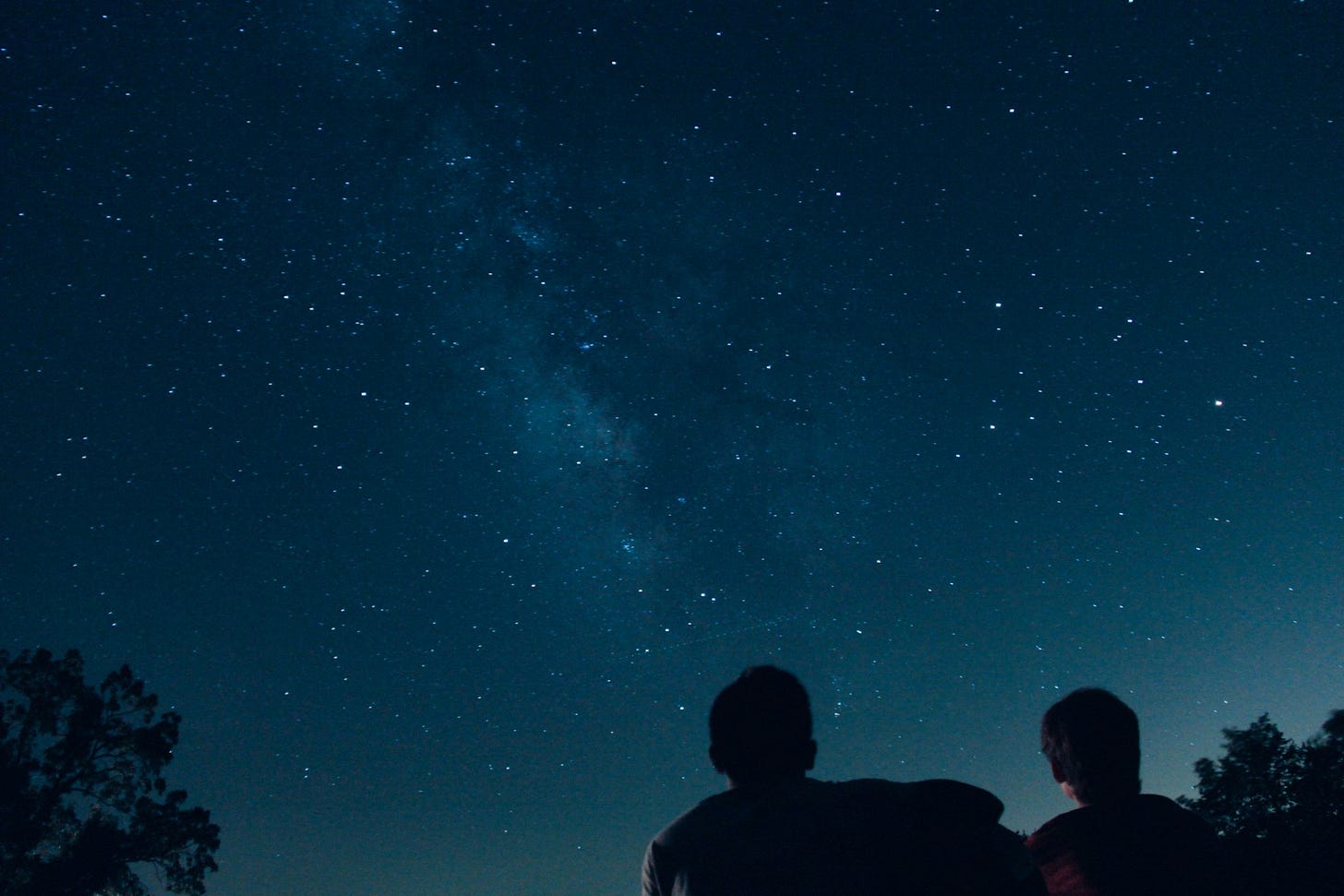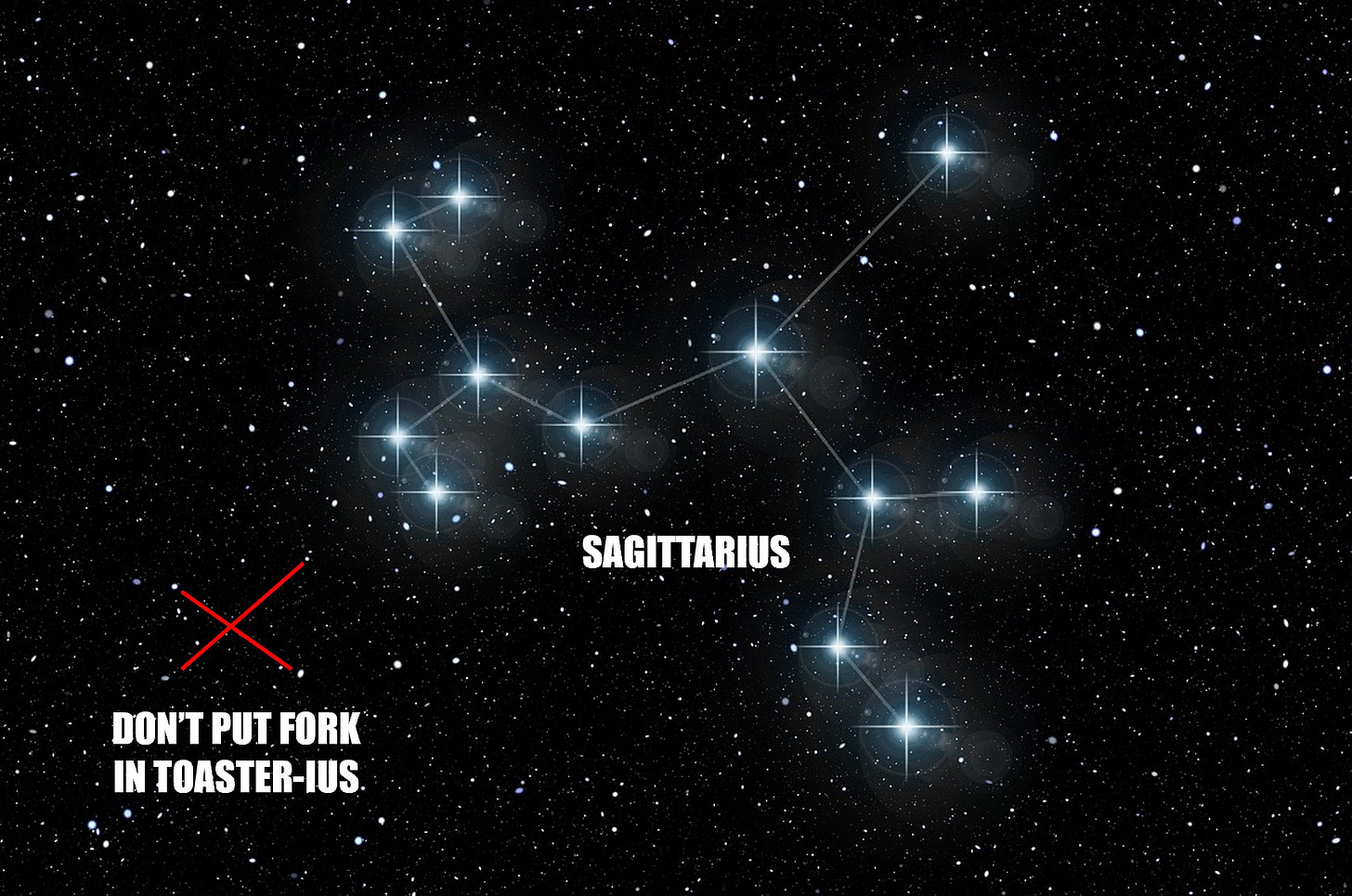Well? How do you know what you know?
No, this isn’t some Descartes-level philosophical question about existence. From the increasing distrust of research institutions to negative views on the education system (all the way through to the rise of flat earthers), our relationships with knowledge and facts are being tested like never before. So, I wanted to take a closer look at how we think about knowledge, learning, and whether this can shine a light on how we approach education in the future.
Going deep (aka ‘the Microscope’)
A baby is born. To begin with, this baby is driven by biological impulses; the need for food, sleep, and warmth.
Over time, this baby starts to perceive the world around them. Still driven by those impulses, it seeks to form new understandings of the world (mostly: “Can I eat this?”). After multiple failed attempts, the baby starts to understand what is edible, what makes tinkly and fun noises, and the consistent presence of one or more people who seem to be a source of the other two.
Annoyingly for the baby, these people also keep trying to stop it from inserting sharp pointy things into this other boxy thing with two narrow slots that pops out tasty bread. The baby doesn’t really understand why, but this too, becomes accepted knowledge, though not firsthand.
I sometimes find it useful to think of the world as an infinite series of random data points, like the stars in the sky. A fork and a toaster are two independent data points that technically aren’t related, but the connection between them results in a ‘bad time’. As the baby matures into a child, they collect more of these connections and patterns of knowledge (aka constellations).
Some connections are formed through experimentation and doing (e.g. epistemology and the Theory of Knowledge taught in International Baccalaureate schools), whilst other knowledge has been imparted to them through teachers, parents, books, and schools (and now TikTok).
So then, how do we build and engage with a body of knowledge?
Going broad (aka ‘the Telescope’)
In 1928, Alexander Fleming accidentally left a plate of bacteria uncovered in a laboratory and then went on vacation. When he returned, he found that the plate was contaminated by a mould colony, which also happened to kill the bacteria; cue the discovery of penicillin.
But the interesting thing here is that the knowledge that fungi and moulds could be used to treat infections was known for centuries. This was existing knowledge discovered independently by ancient practitioners around the world. But they didn’t know why, just that it worked, presumably through a great deal of trial and error (and perhaps a couple of narrowly averted fungi-zombie apocalypses).
Around the 17th century, the trial and error approach took a rational, empirical turn led by philosophers such as Francis Bacon, Robert Hooke, and René Descartes, resulting in a more formalised scientific method. Bacteria can be killed by mould, but why? Under what conditions? And can it be replicated?
Each question would yield a set of experiments, with researchers and scientists setting baselines, testing variables, gathering data, and peer reviewing each other’s results. With each new experiment codified in this manner, humanity was able to broaden its collective knowledge of the world.
This process of knowledge-building became enshrined in research and academic institutions. In its purest form, these institutions exist as a system of open-source knowledge sharing. Scientists and academics can build on knowledge from around the world to make new measurements, predictions, and understandings of our universe. I really love this video below on the discovery of Neptune, which demonstrates this beautifully (4 minutes, worth a watch after the article).
But that’s the system of academia in its purest form, and this is where I think problems start to emerge.
Shaking things up (aka ‘the Kaleidoscope’)
I’ve recently started lecturing at a tertiary institution, allowing me to dip my toes into the world of academia. One of the most intriguing dynamics I’ve observed is the pressure to adhere to the system of academia.
Everything taught must be based on existing bodies of knowledge, peer-reviewed, and published in reputable journals and textbooks. Assignments are assessed moreso on demonstrating that the students have followed the academic process (which is a ‘constellation’ unto itself), rather than their ability to critically think.
On the surface, I can understand why. The quality of academic institutions is typically based on their research contributions, measured by the number of papers that go through the engine of peer review and publication. Therefore, it’s important for teachers and students alike to be immersed in research. However the ongoing pressure to publish or perish creates a cascade of insidious issues:
The rise of paper mills, a process by which manuscripts can be submitted to a journal for a fee. The most egregious (but also hilarious) example of this is Larry, who has 132 citations on Google Scholar and is considered highly authoritative. Larry’s a cat. His meteoric rise came courtesy of Nick Wise and Reese Richardson, who engineered the scheme to demonstrate the issues with fraudulent research.
The increasing number of retractions (10k in 2023) as a result of fraudulent data, AI usage, and straight-up corruption via the aforementioned paper mills. Retraction Watch is a great (if sometimes depressing) resource.
Notwithstanding the broader ‘replication crisis’ (especially in the fields of social science and psychology) in which only ~39% of papers could be considered as ‘successfully replicated’, and even then, the effects were roughly half of what was originally reported.
Now, and I want to make this extremely clear, I do not see this as the fault of the broader academic institution or the system of education. We do not need to throw the baby out with the bathwater. Instead, what I believe is a major problem is the rigid adherence to a system with little application of curiosity or critical thinking.
If we judge an institution by its contributions to knowledge, and the publication of papers is the primary measure of that, then naturally, people will be incentivised to publish more papers. Whilst a vast majority of academics are genuinely attempting to build a robust body of knowledge, the pressure to publish becomes intrinsically tied to progress, career development, and some level of income (we all gotta eat).
In a similar vein, parents want to send their children to good schools, which is typically measured by students getting good grades. Schools that consistently produce good grades get showered by funding and patronage, which creates other pressures (such as any teacher who may have felt pressured to ‘pass the student’). I also muse that when a student (or a helicopter parent) complains about grades, it’s typically: “Can I get a better grade?” and not: “How do I better demonstrate my learning?”
As I’ve argued previously, we do not need each child to reinvent maths for themselves. A child who has figured out basic arithmetic is not discovering anything new. But what they are doing is learning how to form the connections between numbers for themselves. And perhaps therein lies the path.
How do you know what you know?
How did you form the connections between your constellations of knowledge? How did you learn to apply them? What did you do when a constellation didn’t match the reality of what you were observing? When has your expertise led you astray, and what did you do about it?
And in reflecting on those questions, how might we better reward curiosity, creativity, and critical thinking?
For any readers who are teachers (primary, secondary or tertiary), I’d really love to hear from you. What other pressures do you experience? Or perhaps, on the more positive end of the spectrum, what strategies or methodologies have you come across that feel like a move towards better learning?







Excellent and vexed questions, Scott. Tests and exams only show so much. Application of knowledge is a much more significant measure. But measuring curiosity, critical thinking and creativity? Much more complex. Yet often more significant.
I absolutely loved it! The way you used the microscope, telescope, and kaleidoscope to frame knowledge is an inspiring perspective on learning. Appreciated the idea of zooming in to form connections and zooming out to observe the bigger patterns.
Your point about experimentation stuck with me. We learn a lot through trial and error. It makes me think how often do we try new ways in our learning instead of just sticking to the usual methods? That's when creativity and innovation can emerge.
Your critique of academia resonated with me. The pressure to conform to a system rather than fostering curiosity is a significant challenge. It makes me reflect how we can create environments that genuinely reward curiosity, creativity, and critical thinking which I relate and keeps me inspired.
Anyway, I wanted to express my appreciation for your piece. :)